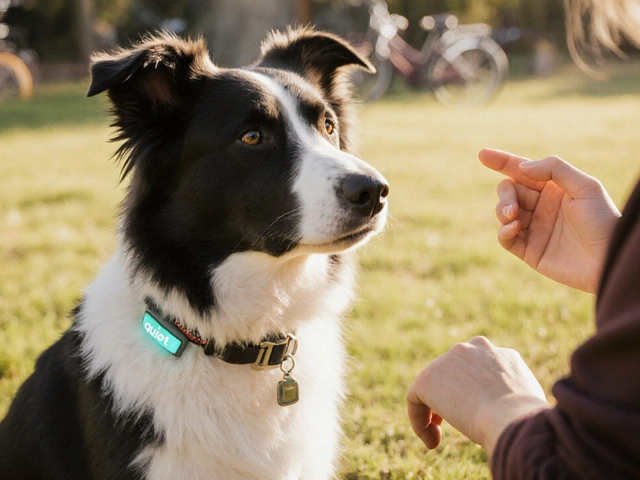Ever dropped a blueberry on the floor just to have your dog swoop in before you could pick it up? Turns out, that's not always a bad thing. Blueberries aren't just safe for most dogs—they're actually full of antioxidants and vitamins that support overall health. But before you turn your dog into a berry-loving machine, there are a few points you'll want to keep in mind.
Not every treat is created equal, and just because a food is healthy for humans doesn't mean it works the same for dogs. With blueberries, though, you'll be surprised how many vets and pet nutritionists give them a thumbs up. They’re super low in calories, don’t have added sugar, and provide fiber your dog’s gut could use—if you serve the right amount and avoid a few pitfalls. Let's see when blueberries really shine, and how to give them so your dog gets the benefits (and not an upset stomach).
- Can Dogs Eat Blueberries?
- Health Benefits for Your Pup
- Best Ways to Give Blueberries to Dogs
- Potential Risks and Smart Tips
Can Dogs Eat Blueberries?
If you’re standing in your kitchen with a handful of blueberries, you can relax—blueberries are safe for dogs. Lots of vets and pet experts nod to blueberries as one of the safest human foods for dogs. The American Kennel Club even lists blueberries as a top choice for a fresh, healthy snack. The trick is serving them plain and in the right amount.
Here's why dogs can eat blueberries without worry:
- Low in Sugar: Blueberries have way less sugar than most store-bought dog treats. Plus, there’s no added sweetener or junk—just fruit.
- Non-toxic: Unlike grapes or raisins, blueberries won’t poison your furry friend. There’s no known toxin in them for dogs.
- Small Size: These little berries are basically bite-sized, which makes them easy for most dogs to chew and digest. No chopping, no fuss.
It’s always smart to avoid overdoing it. Too many blueberries can upset a dog’s stomach or cause some pretty wild bathroom trips. For most pups, a few berries—think five or six for a medium-sized dog—are a solid start.
| Treat | Calories (per 10 pieces) | Sugar (g) |
|---|---|---|
| Blueberries | 9 | ~1.5 |
| Commercial Dog Biscuits | 35 | ~3 |
| Dried Banana Chips | 50 | ~7 |
Don't use blueberry muffins or yogurts meant for humans—extra sugar and weird ingredients can do more harm than good. Stick with fresh or frozen blueberries, and always wash them first, just like you would for yourself.
So next time your dog gives you those big puppy eyes when you're snacking on blueberries, sharing a few is usually a safe bet—just keep portions small and simple.
Health Benefits for Your Pup
When it comes to snacks, blueberries are hard to beat for dogs. They're loaded with antioxidants, especially vitamin C and vitamin K, which help protect your dog’s cells from damage and support their immune system. Antioxidants basically mop up the mess made by free radicals—a fancy way of saying they help your dog age healthier and may reduce risk for chronic diseases.
Those tiny berries are also packed with fiber, and a higher fiber diet can mean better digestion (less upset stomach or constipation). If your dog is struggling with regularity, swapping some regular treats for a few blueberries can actually help keep things moving smoothly.
One surprising fact—studies have found that dogs who eat foods rich in antioxidants like blueberries have more agile brains as they get older. So, a few blueberries here and there may help keep your pup sharp. Plus, they’re low in calories, so you don’t have to worry much about weight gain, even if you toss a few extra berries their way.
- Vitamin C and K: boost immune function and help with blood clotting.
- Fiber: supports gut health and helps digestion.
- Phytochemicals: compounds that may cut down the risk of cancer or inflammation.
Here’s a quick look at what a handful of these berries brings to your dog’s bowl:
| Nutrient | Per 10 Blueberries |
|---|---|
| Calories | 9 |
| Vitamin C | ~1.5 mg |
| Fiber | 0.4 g |
| Sugar | 1.5 g |
Adding dog health supplements with blueberries can give a nutrient boost—just make sure you pick products with real fruit, not just blueberry flavoring. And as always, fresh or frozen blueberries are way better than dried ones packed with sugar. Bottom line: blueberries make a tiny but powerful difference in your dog's diet, and it's such an easy swap for less healthy treats.

Best Ways to Give Blueberries to Dogs
If you're thinking of adding blueberries to your dog's snack rotation, it's easier than you think. First, always wash the berries to remove any dirt or pesticide residue. Fresh or frozen blueberries both work—just keep them plain and skip the sugar, syrups, or chocolate coatings that can harm dogs.
You might wonder: How many is too many? For a small dog, start with just two or three berries. For bigger dogs, a small handful—maybe five or six—is plenty. Giving too many at once can lead to a stomachache or, well, some noises you'd rather not hear from your pet. The American Kennel Club points out that moderation is key, and blueberries should make up less than 10% of the treat portion of your dog’s daily calories.
- Offer them right from your hand as a reward during training. Dogs usually love the juicy pop.
- Mix a few into your dog’s kibble for a burst of flavor and nutrients.
- Freeze blueberries and use them as cooling treats, especially on hot days—they’re like little edible ice cubes.
- You can even mash some up and stir them into plain, unsweetened yogurt for a DIY pup parfait.
If your dog’s on the smaller side or has trouble chewing, you can slightly crush the berries to prevent choking. Always keep an eye out the first time you serve blueberries, just in case your pet reacts oddly.
| Dog Size | Berry Serving (per day) |
|---|---|
| Toy/Small Breeds | 2-3 blueberries |
| Medium Breeds | 4-6 blueberries |
| Large Breeds | 6-8 blueberries |
Remember, dog health supplements and snacks like blueberries aren’t a replacement for a balanced meal. Use them as a fun bonus, not the main event. And if your dog has allergies or a sensitive stomach, chat with your vet before you dive into the blueberry bowl.
Potential Risks and Smart Tips
Even though blueberries are safe for most dogs, there are a few things every owner should watch for before handing out handfuls. While it’s super rare, some dogs can be sensitive to new foods. An upset stomach—think loose stool or extra gassy—is usually the first warning sign. Feed just a few berries at first and see how your pup reacts.
Choking is another real concern, especially if you’ve got a little dog or a pup known for inhaling treats instead of chewing. Serve each berry one at a time, or smash them up for tiny breeds. If you give frozen blueberries, go slow—those can get slippery or hard for smaller mouths to handle.
As low-calorie as they are, too many blueberries can tip your dog's gut balance. Too much fruit means, well, poop problems. Treat blueberries like any treat—keep it to less than 10% of their daily calories. Here’s an easy guide:
| Dog Weight | Max Blueberries/Day |
|---|---|
| 10 lbs | 2-3 berries |
| 25 lbs | 5-6 berries |
| 50 lbs | 8-10 berries |
And let’s not skip allergies. It’s rare, but if you spot itching, swelling, or your dog acting weird after eating them, stop right away and call your vet. Sometimes, sneaky stuff gets added to frozen blueberries, like sugar or artificial sweeteners. Stay away from anything but plain, unsweetened fruit. One ingredient: blueberries, period.
- Wash berries first. Pesticides or dirt don’t do anyone any good.
- Skip baked goods or blueberry-flavored snacks—they often have ingredients dogs should avoid.
- Stick to small servings for puppies or older dogs with sensitive bellies.
If your furry friend’s on special dog health supplements or has health issues like diabetes, ask your vet before making blueberries a regular snack. Some supplements or meds can interact with certain foods, so it’s smarter to ask than guess.







